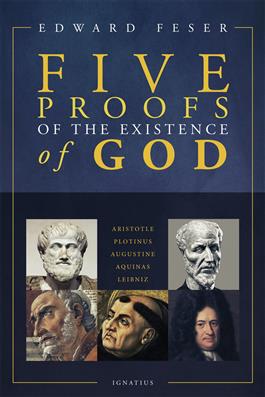
This error often occurs among those atheists who know very little science, even though they love to yap about science – they “F’in love it”, so we’re told – and shuffle around terms and phrases they heard from other physicists for rhetorical effect. Furthermore, Feser presents deductive arguments which seek to prove with certainty that the conclusion is correct, analogous to proving a mathematical theorem not as some uncertain probabilistic hypothesis to be ‘tested’ alongside others – a different and yet much more certain form of reasoning, just as the truths of geometry are known to absolute certainty, more certain than any physical theory could ever be, even the strongest of theories such as quantum mechanics.

Questions of this sort are, as I said, prior to any subordinate question about how a particular physical state may change to another, especially concerning questions of existence, since questions of existence are logically prior to any inquiry about a particular physical reality and its evolution.

These considerations include what change is and how it is to be understood, how composites of any sort can exist at all, what universals are and how they exist, how something in which essence is distinct from its existence could exist, and how any contingent reality could exist for even a single moment. Each one of the arguments in Feser’s book addresses questions which are prior to any possible question about physics and need to be answered in order to establish the very concepts needed to do physics and the other natural sciences and therefore do not stand or fall with particular physical speculations, such as Carrier’s idiosyncratic “superstring theory”. Carrier throughout his responses shows he does not understand Feser’s arguments or his intentions with these arguments, thinking that Feser is trying to present a ‘scientific hypothesis’ alongside modern physical hypotheses about how specific physical things behave to ‘best explain the data’ or a grand ‘model’ of how the universe works as it changes from one physical state to the next.

Professional atheist Richard Carrier recently decided to weigh in on Edward Feser’s book Five Proofs of the Existence of God(Feser’s responses here and here).


 0 kommentar(er)
0 kommentar(er)
